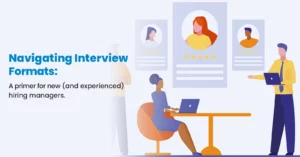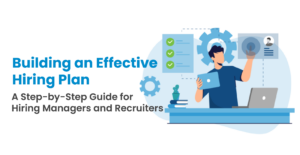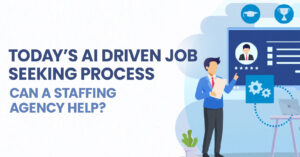Advances in technology are disrupting the way organizations do business– dictating how companies drive revenue, engage customers, structure internal processes, engage candidates and manage their workforce.
As a result, it’s crucial for leaders in support functions like finance, procurement and human resources to be aware of the implications of technological change—yet staying on top of disruption can prove daunting, if not overwhelming, for many professionals.
Yet, if organizations aren’t prepared for the threats and opportunities that come with new tech, they can’t sustainably leverage their investment to an advantage.
How will emerging technologies impact a contingent workforce?
Organizations will see a shift in skill sets
Ongoing developments in Artificial Intelligence (AI), robotics and machine learning have created technologies that can match or even outperform human ability. Automation, in particular, will become more prevalent as technology continues to complement human labour, eventually eliminating entire occupations that consist primarily of repetitive tasks.
Research from McKinsey Global Institute finds in advanced economies with relatively high wage levels, like France, Japan and the U.S., automation could displace 20 to 25 per cent of their workforce by 2030. Moreover, the global workforce can see up to 15 per cent, or 400 million workers, displaced by automation by the same year.
Further research from McKinsey finds that as automation expedites the shift in the types of skills organizations will require, advanced technological skills will be in highest demand—most notably, programming. The demand for social, emotional and higher cognitive skills will also rise, forcing organizations to put pressure on any pre-existing gaps in their workforce and review credentialing systems.
As talent continues to work alongside rapidly evolving technologies, existing occupations will change and new ones will be created– accounting for 10 per cent of new jobs by 2030, and organizations will need to redesign work to ensure that talent and technology can operate together effectively. Moreover, as technologies continue to evolve, contingent talent with the ability to upskill on a project-by-project basis will be crucial to a successful, agile workforce.
AI and data will be major drivers in how organizations acquire talent
HR technology is seeing unprecedented investment and early adoption, with 80 per cent of HR professionals believing recruitment tasks like candidate assessments, interview scheduling, sourcing, screening and onboarding can all be automated— and 45 per cent of large organizations are already increasing spend in this area. The use of artificial intelligence, bots, machine learning and big data are all contributing to the move towards greater automation.
Organizations can build, train and upskill talent easier
Technology is also making it easier to deliver instant solutions for immediate challenges—providing organizations with Learning and Development (L&D) tools that can be customized to how individual workers consume content. Cloud-based platforms provide customizable knowledge sharing and learning experiences anytime on any device; gamification offers engaging platforms for talent to gather information, complete skill assessments or upskill current knowledge. Early user adoption also includes Virtual Reality (VR) in sexual harassment and risk mitigation training.
Be aware of the opportunities and threats that come with new tech…
While early user adoption of innovative tech can be beneficial, heavily investing in a new digital solution also presents risk. Not many organizations have the capabilities to fully vet the technology before implementation, and even then, imperfections can exist. Even more, at the current rate of change, the tech could also be out-of-date by the time the research has been conducted.
Investing in the wrong technology or taking too long to get on board is a challenge organizations face that will affect their ability to cost-effectively engage and manage talent, and ultimately, meet business objectives. It’s critical to understand how to leverage opportunities while mitigating risk in a sustainable manner.
What role does a staffing agency play?
Staffing firms have a role to play—both in meeting clients’ changing skills requirements and educating their candidates in the types of skills they should be investing in now to progress their careers in the future. Furthermore, a staffing agency must commit their resources to researching, vetting and implementing technologies and processes that create value to their clients, candidates, talent and partners.
As a trusted partner, Procom is committed to advising our clients on the best solutions available to meet their business goals and deliver innovative services that transform how they acquire and manage talent.
The Voice of Talent: Return to the Office Report
Procom recently surveyed over 1,000 knowledge workers to discover how and where they prefer to work as offices re-open across North America.
The Voice of Talent Report offers actionable insights into what workers expect in relation to mandatory vaccinations, remote work preferences, The Great Resignation, COVID-19 safety measures and more.
Access your complimentary copy to discover how to attract talent in a post pandemic world:
{{cta(‘876b6743-23dc-425b-b245-80dba677a9c7′,’justifycenter’)}}




